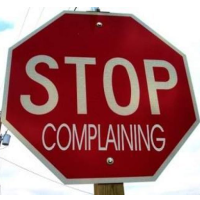North Carolina First State to Outlaw Student Cyber Attacks on Teachers

Students in North Carolina who ridicule or “torment” teachers online could now spend two months in jail, under a new law that’s the first of its kind in the United States.
The 2012 School Violence Prevention Act, which took effect December 1, makes it a misdemeanor for students to create false profiles for teachers, sign them up for Internet porn or post their images and private information on the Web. The law also prohibits any statement, “whether true or false,” which might provoke a third party to harass a teacher or administrator.
Lawmakers adopted the new cyberbullying law because five years ago a group of high school students got away with creating a phony MySpace page for a teacher that implied he was a pedophile. Prosecutors were unable to punish the students because existing law was insufficient to fit the crime.
The American Civil Liberties Union (ACLU) opposes the law, claiming it is too vague and will stifle student speech.
“Nobody else feels like it’s necessary to criminalize student speech online,” said ACLU policy director Sarah Preston. “Essentially, what we’re teaching students is it’s not OK to criticize government officials….Young people should not be taught that they will be punished for telling the truth, speaking freely, or questioning authority–yet that is exactly what could happen under this law. If it is okay to criminalize students who criticize teachers online, what is to stop the government from making it illegal for any one of us to criticize some other government official, like the city council or state legislature, whether the comments are made online or not?”
-Noel Brinkerhoff, David Wallechinsky
To Learn More:
North Carolina First State to Outlaw Student Cyber Attacks on Teachers (by Ann Doss Helms, Charlotte Observer)
New Law Criminalizing Online Student Speech Takes Effect Dec. 1 (American Civil Liberties Union)
- Top Stories
- Unusual News
- Where is the Money Going?
- Controversies
- U.S. and the World
- Appointments and Resignations
- Latest News
- Trump Renames National Football League National Trump League
- Trump to Stop Deportations If…
- Trump Denounces World Series
- What If China Invaded the United States?
- Donald Trump Has a Mental Health Problem and It Has a Name






Comments